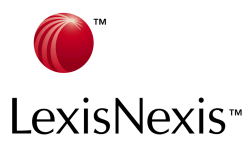Klint Finley
Latest from Klint Finley
Windows 8 Developers Will Be Able to Build Metro Apps with .Net and XAML
Today at Build, Microsoft announced that developers will be able to build native Metro applications for Windows 8 using XAML, C#, Visual Basic, C++, HTML5 and more. This will surely come as relief to .Net and Silverlight developers concerned that Microsoft would de-prioritize those platforms. Silverlight is a framework for building applications with XAML and ...
Kapow Creates Its Own Google Plus API
Kapow, a company, created an integration between Google Plus and Salesforce.com Chatter at Dreamforce earlier this month. And it did so without the forthcoming Google Plus API. A new post on the company’s blog explains how Kapow Katalyst Application Integration Platform can use bots to login to sites and extract information and stream it into ...
Mindjet Acquires Cohuman, Doubles Down on Collaboration
Today Mindjet, the vendor of the mind mapping application Mind Manager, today announced that it will acquire social task management company Cohuman. Terms of the deal were not disclosed. Mindjet also announced Mindjet Connect, a new “work management” solution that will be available Sept. 22. Both Cohuman and Mindjet Connect are software-as-a-service offerings with freemium ...
Google to Announce Dart: Yet Another Programming Language
If you think what the world needs is another programming language you’ll be delighted to know that Google has a new one just for you. It’s called Dart and it will be announced at the GOTO conference on October 10. The announcement on the GOTO site reads: “Breaking news: Google to unveil World News at ...
LexisNexis Puts Its Hadoop Competitor on GitHub
HPCC Systems, the Apache Hadoop competitor developed at LexisNexis Risk Systems, just shared its source code on GitHub. The company announced in June that it would open source the project and it’s now made good on that promise. HPCC Systems released virtual machines running the HPCC platform in June, but now for the first time ...
New Relic Announces Python Support, New President
New Relic is exactly the sort of company that is re-wiring the services industry: it’s easy to get started, powerful and deployed entirely from the cloud. Yesterday at Djangocon 2011, the company announced beta support for Python application monitoring. New Relic offers performance management for applications hosted in the public cloud, and has partnerships with ...
Intelligence Community Puts Up Money for an Easier to Use Hadoop
Platfora, a startup dedicated to making Apache Hadoop easier to use, came out of stealth today and announced $5.68 million in series A funding. The company was founded by Ben Werther, who was head of product at Greenplum, the data warehousing solution EMC acquired last year. Many companies are hoping to make business intelligence and ...
Salesforce.com Spends $2.6 Million on Social.com Domain Name
Salesforce.com was likely the mystery winner of the social.com domain name auction, which went for $2.6 million, putting its spending for domain names in the past year over $4 million. According to Fusible, the domain name is registered to Alica Del Valle, Salesforce.com’s trademark attorney. Fusible reports that Salesforce.com also recently picked up the do.com domain ...
5 Executives Who Could Lead Yahoo Next
The top job at Yahoo is up for grabs. Yesterday Yahoo CEO Carol Bartz confirmed reports that she has been fired by the board of Yahoo. Kara Swisher of AllThingsD reports that Yahoo is hiring strategic consultants and and executive search firm to determine how to move forward. Who could and should take the helm ...
Instead of “NoSQL” Should You Be Thinking “NoDatabase”?
Debates about which database to use – and now even which *type* of database to use – are common. But what if you didn’t even need a database? Martin Fowler makes that case in this post. He suggests that “memory images,” which use event sourcing to create persistent stores of applications states, could be used ...















